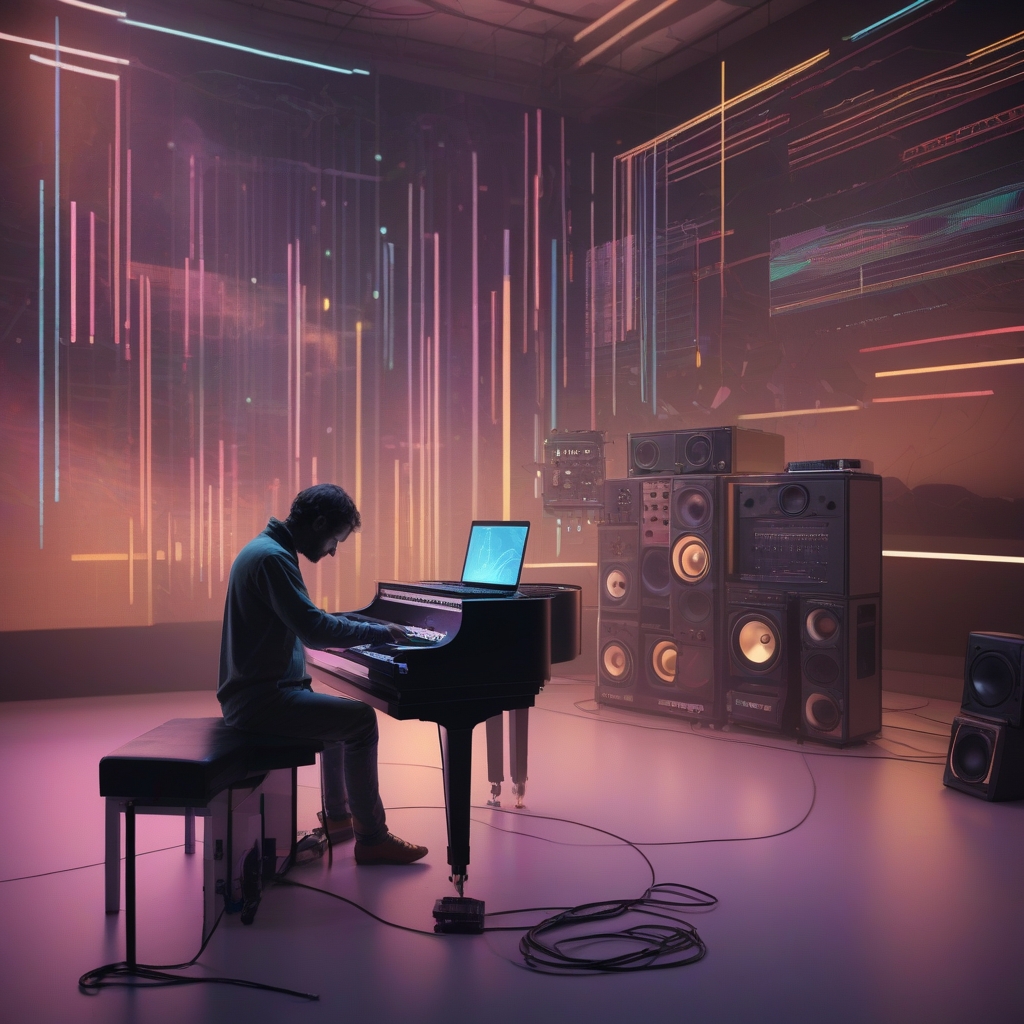Introduction
The release of Caribou’s latest album, “Honey,” has sparked a whirlwind of conversation not for its melodic tunes but rather for the methodology behind its creation. This new offering from the acclaimed electronic music producer Dan Snaith—known professionally as Caribou—delves into uncharted territories with the heavy integration of artificial intelligence (AI) in its production process. It has fostered a spectrum of emotions among fans and critics alike, from intrigue and excitement to skepticism and concern.
The Intersection of AI and Music
Artificial intelligence has progressively infiltrated various facets of our daily lives, including the way we create and consume music. With the capacities of machine learning, AI can now compose melodies, suggest arrangements, and even generate lyrics. For many, this fusion represents a monumental step forward in music production. **However, it also raises significant questions about authenticity, creativity, and the essence of music itself.**
The Concept Behind “Honey”
Caribou’s “Honey” is not the first album to integrate AI, but its approach does illuminate the growing trend of blending traditional artistry with technology. Dan Snaith has been openly experimental throughout his career, often incorporating new and innovative elements into his work. With “Honey,” he ventured further by collaborating not only with musicians but with algorithms and machine-learning models to craft a collection of tracks aimed at reflecting a new era of sound and creativity.
While artificial intelligence aided in generating certain elements of each track on “Honey,” Snaith emphasized the collaborative nature of this process. **He refers to the AI as a tool rather than a creator**, underscoring that the creative vision and final decision-making remained firmly in human hands.
The Benefits of AI Integration in Music Production
There are several potential benefits to utilizing AI in music production, many of which are showcased in “Honey”:
- **Efficiency and Speed**: AI can rapidly generate music components and make real-time suggestions, saving artists significant time during the creative process.
- **Creative Inspiration**: With AI’s ability to process vast amounts of data, it can propose unexpected harmonies or chord progressions, offering new avenues of inspiration for musicians.
- **Innovation in Sound**: By analyzing patterns and trends across genres, AI can create entirely new sounds, pushing the boundaries of conventional music.
Debates Surrounding AI in Music
Despite the promising advantages, the incorporation of AI in music production invites a host of controversies. Some fans and critics are cautious about the potential downsides:
- **Authenticity Concerns**: There are fears that art may lose its human touch, becoming more mechanical and less expressive when heavily influenced by AI.
- **Job Displacement**: As technology rises in creative spheres, there is anxiety about the impact on traditional roles within the music industry, from producers to composers.
- **Legal and Ethical Issues**: Questions about intellectual property rights and authorship arise when machines are involved in the creative process.
Caribou’s Response to Criticism
Dan Snaith has remained transparent about his experience using AI as a tool in “Honey,” addressing critics who are wary of AI’s role. He believes that AI can augment human creativity without replacing it. To him, the AI essentially acts as a sophisticated musical companion, offering suggestions and possibilities that a human might not consider.
The essence of the album lies in human interpretation and intervention, reinforcing that AI’s role was supportive rather than dominant.
The Future of AI in the Music Industry
As technology continues to permeate every aspect of life, the music industry is unlikely to remain immune to these changes. **AI holds both promise and peril for future music production:**
- An increased ability to craft personalized music experiences, tailoring playlists and compositions to user preferences using AI prediction models.
- Potential for innovative collaborations that cross genres and styles with the help of machine learning, expanding the musical landscape.
- Requirement for new regulatory frameworks to address ownership and copyright concerns in AI-generated music.
The evolution of AI continues to prompt an essential dialogue about technology’s role in creative processes and how artists can maintain their unique voice amidst such advancements.
Conclusion
Caribou’s “Honey” serves as a pivotal case study in exploring the convergence of music and technology. While its AI involvement is a point of contention, it also signifies a broader trend in which artists explore novel tools to push creative boundaries. In the end, the harmony between human creativity and artificial intelligence may redefine artistic production, offering potential for endless innovation within the musical landscape.
The journey of AI-aided music production is just beginning, and albums like “Honey” pave the way for future exploration. Whether skeptical or optimistic about this transition, one thing remains clear: the conversation on AI’s place in the music industry is only just starting.

Leave a Reply